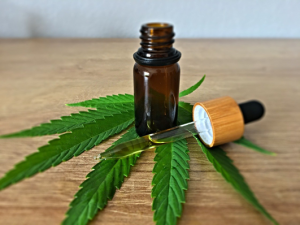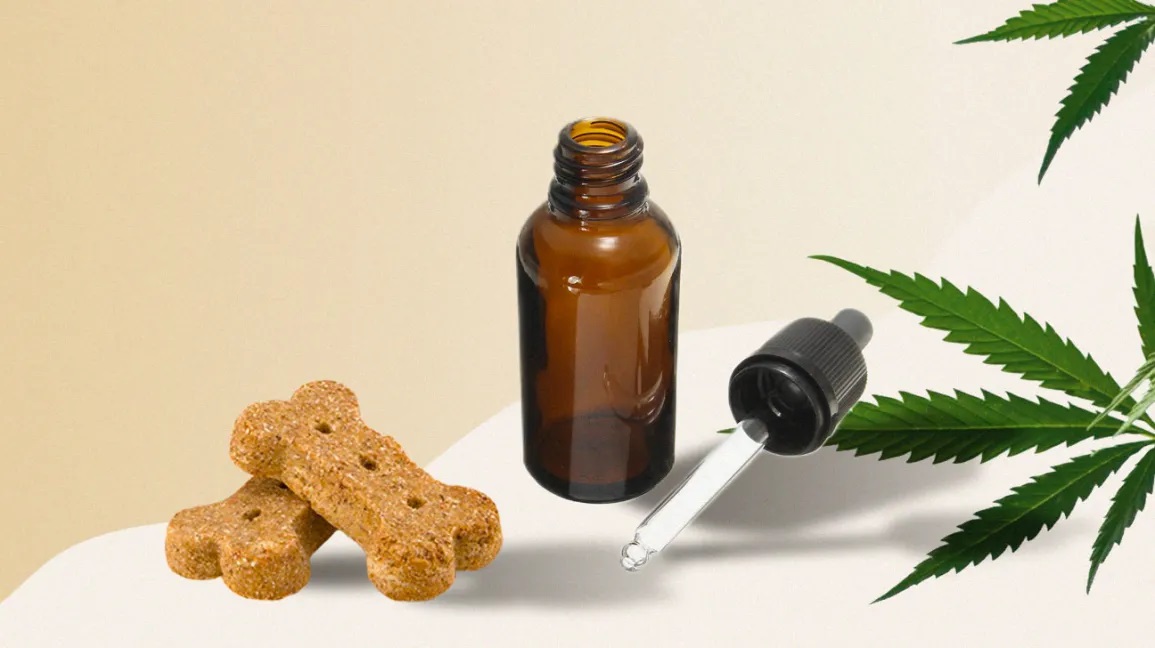The CBD market is growing in popularity due to a variety of factors, including its increased use in drug withdrawal and cancer cases, and the various benefits that CBD products provide, such as anti-inflammatory properties, treatment of epilepsy and mental health disorders, and protection from Alzheimer’s disease. Though CBD beverages and candies have grown in popularity, CBD oil tinctures, capsules, vapes, and topical CBD such as balms and creams are the most effective and extensively utilized CBD delivery methods. CBD is now widely available in many health food stores and pharmacies, as it is becoming more mainstream. But here, we will examine whether a big spoon of CBD tincture can help you sleep?

What Is CBD Tincture?
A CBD tincture is a liquid extract that is based on alcohol. The natural ingredients of the plant are separated and extracted using high-proof alcohol, which is also employed in the finished product. Alcohol-based tinctures often include 60 to 70 percent alcohol, giving them a longer shelf life of three to five years but a bitter flavor. To disguise the bitterness of tinctures, they are frequently blended with sweeteners, flavorings, or vegetable glycerin. Depending on the product’s objective, some companies include vitamins, botanical extracts, or supplements like melatonin.
CBD tinctures are administered sublingually or under the tongue for quick and effective absorption. CBD tinctures can also be mixed into meals and drinks to be consumed orally. Depending on the carrier oil, CBD oils can be administered topically or straight to the skin. Applying a CBD tincture topically, on the other hand, will have no effect.
As alcohol is present in tinctures, CBD tinctures have a better bioavailability than CBD oil. It acts as a preservative, extending the shelf life of CBD. It has an absorption rate that is even faster than CBD oil.
How Are CBD Tinctures made?
The industrial hemp plant, a variety of cannabis designed to contain less than 0.3 percent THC, is most commonly used to make CBD tinctures. CBD tinctures can also be created from low-THC marijuana strains. The majority of commercial CBD tinctures are made with either an alcohol or CO2 extraction technique. To extract the CBD from hemp flowers, they are steeped in alcohol, vinegar, glycerine, or CO2. CO2 is utilized to produce a highly purified CBD isolate, infused into a carrier base, most commonly oil.
As a result, many CBD tinctures on the market are oils. While these oil-based products don’t technically qualify as tinctures, the phrase is frequently used to describe any highly concentrated CBD extraction that comes in a dropper vial and can be taken sublingually. It also distinguishes oil-based “tinctures” from other CBD oil products with distinct applications. Commercial CBD tinctures are convenient to use and include high levels of purity. CO2-extracted oil-based tinctures are extremely potent.

What Are the Benefits of CBD Tinctures?
1. CBD Tincture can work as a treatment for chronic pain
They pick up chemical instructions from a variety of sources and help your cells respond. This response contains anti-inflammatory and pain-relieving characteristics, making it useful for pain relief. This suggests that CBD oil and other CBD-based treatments may help those who suffer from pain, such as chronic back pain. There is mounting evidence that marijuana’s non-psychoactive components, such as CBD, may offer a new treatment for chronic pain.
2. CBD Tincture to Quit Smoking
Cigarette smokers may find CBD oil to be an effective method of quitting smoking. To begin with, cannabidiol can help with tobacco withdrawal symptoms such as headaches, anxiety, insomnia, and concentration problems. Second, it makes you less responsive to cigarette cues, which helps you ignore cigarette cravings. Finally, as a temporary substitute for cigarettes, you can smoke CBD joints or vape CBD liquid to help you overcome your addiction. In a pilot study conducted in 2013 smokers who used CBD inhalers smoked fewer cigarettes and no longer craved nicotine. This implies that CBD may aid in the cessation of smoking.
3. CBD tincture helps you sleep
One-third of adults in the United States receive less than the recommended seven hours of sleep per night as per the study by the Centers for Disease Control and Prevention, 2016. If you’re one of them, you’re well aware of how sleep deprivation may make you feel sluggish throughout the day. Worse, sleep deprivation has been connected to seven of the top 15 causes of death in the United States. Research suggests that cannabidiol (CBD) may have therapeutic promise for the treatment of insomnia, according to a preliminary study on cannabis and insomnia. CBD has shown positive results in treating REM sleep behavior disorder and excessive daytime sleepiness. In contrast, nabilone has been shown to lessen nightmares associated with PTSD and improve sleep in chronic pain patients.
How Does CBD Tincture Help You sleep?
CBD has been found to work jointly with melatonin, a naturally occurring hormone that tells the body when it’s time to sleep. Melatonin is a hormone generated by the pineal gland that helps to regulate the sleep-wake cycle, which can be disrupted by insomnia, stress, alcohol, or exposure to too much light before bedtime. A supplement can aid with this biological function when the body does not create enough melatonin. While several firms sell CBD and Melatonin supplements individually, we’ve come up with a way to combine the two. CBD may also help people with insomnia, REM sleep behavior abnormalities, and excessive daytime sleepiness, according to research.
Although CBD alone can aid in sleep, it has been shown that using full-spectrum hemp oils, which contain a variety of cannabinoids, can help you sleep even better. It has been demonstrated that consuming a product containing the cannabinoid CBN, for example, improves sleep quality.
Conclusion
Your reaction to CBD will be influenced by a variety of factors unique to you. Your body type, weight, gender, and metabolism are all factors to consider. Furthermore, other factors such as how you consume CBD (for example, by ingesting oil or putting a topical to your skin), as well as any drugs or supplements you may be taking, can alter the effects of CBD. If you’re thinking about starting a CBD habit to help you sleep, you’ll need to determine what dosage is correct for you. While it is recommended to start with 12–20 mg twice daily, there is no set dosage or ‘official serving size’ because it depends on the individual. To find the proper amount and kind of CBD for you, you’ll need to vary your dosage based on how you’re feeling.












